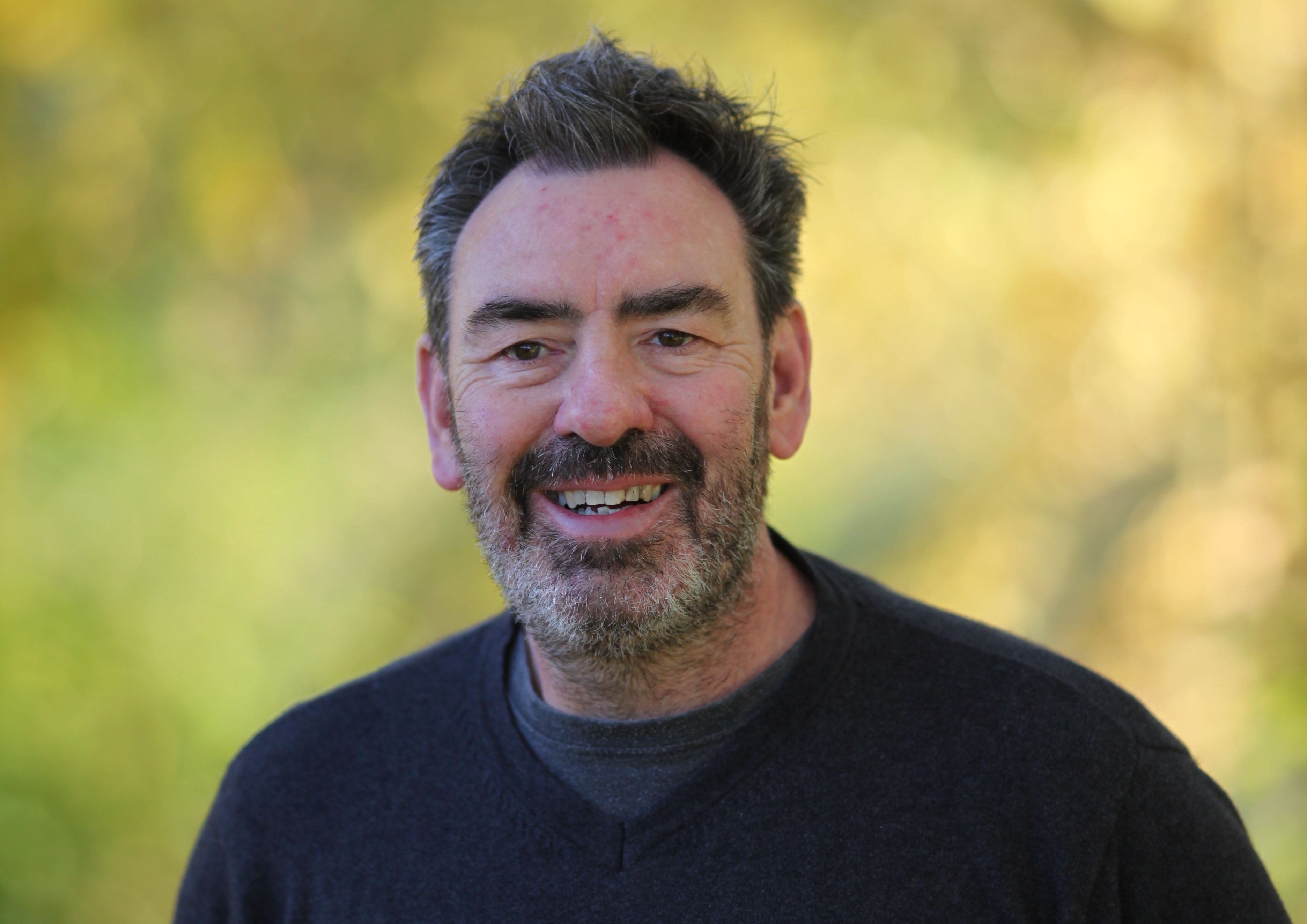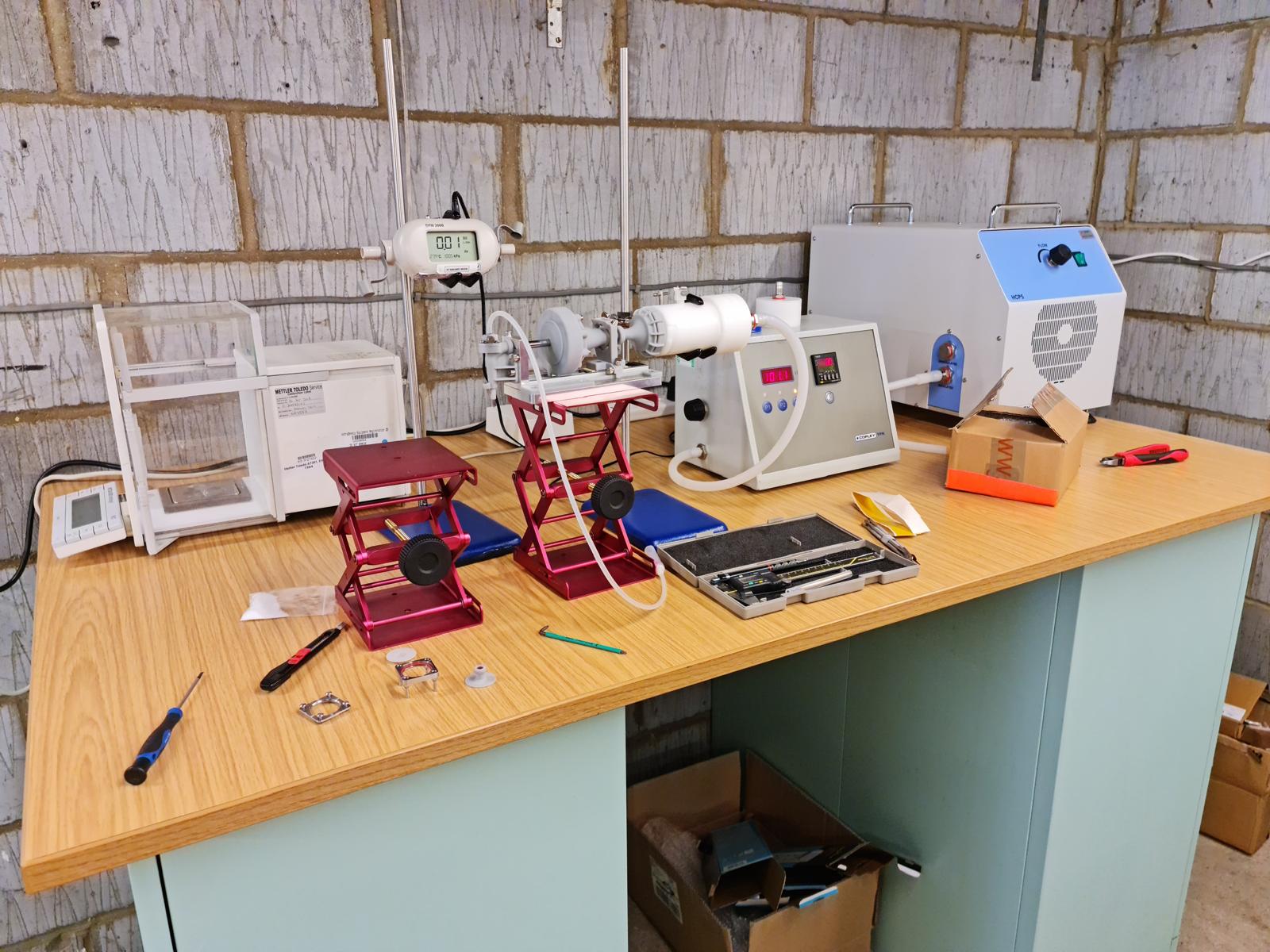Millions of Britons rely on the inhaler, a device invented back in 1956. However, not many people are aware that core inhaler technology has barely changed in 70 years — or that it remains extremely inefficient.
Recent studies show that up to 90 per cent of medicine administered in an inhaler puff is wasted, with drugs failing to reach the lungs or getting lost in the air. A British start-up, Cambridge Healthcare Innovations (CHI), is among those on a mission to change this status quo, and it’s gaining ground fast.
CHI has patented the Quattrii, a new type of dry powder inhaler (DPI) technology that delivers medicine to the lungs far more efficiently. It can deliver at least 70 per cent of a drug (biological or mRNA) to the lungs per puff, up from between 10 and 50 per cent in existing inhalers. This is significant because it means the Quattrii could potentially be used to deliver the cytotoxic chemicals used to treat lung cancer directly to the lungs. This would mean patients could avoid the side-effects of full-body chemotherapy and hours hooked up to IVs.
David Harris, co-founder and chief executive of Cambridge Healthcare Innovations, developed the Quattrii, below, after decades working on inhalers
CHI was founded in 2018 by David Harris, 53, a physicist and inventor, and Michael Oakes, 49, a product designer. Harris, CHI’s chief executive, worked for decades at medical device development consultancies on respiratory technologies and has more than 50 patents to his name.
Harris said: “Quattrii is more suitable for conditions like lung cancer because it deposits very little in the mouth and throat, delivers a high and consistent dose to the lung, can carry large fill masses, and separates and retains the carrier particles from the API [active pharmaceutical ingredient].”
Quattrii doesn’t require cold-chain storage, and could also be used to deliver highly potent drugs such as those used by Parkinson’s patients. Dr Jenny Lam, associate professor of pharmaceutics at University College London, has said it “is truly unique and offers huge potential for those developing a wide range of drugs that can save the lives of millions of people”.
• Working days lost to respiratory illness soar since pandemic
Harris said the device, which is being produced by the US group Aptar Pharma, would be ready for pharmaceutical companies to use in early (phase 1) clinical trials in September and could be in NHS clinics as early as 2028.
The inventor, who took out a mortgage on his house to launch CHI and was testing airflow with a vacuum cleaner at his dining table just a few years ago, said Quattrii going into clinical trials didn’t feel real. “It’s amazing that it worked,” he said.
The founders initially launched CHI as a side hustle, before spending a year “trying to get the technology into a state where we could present and pitch it”. Through its thrifty research and development, and a partnership approach, CHI has created a trial-ready device for about £2 million in investment and grants, Harris said. This is a tiny amount for a medical product; recent studies show the average cost of developing a therapeutic complex medical device is £15 million.
The founders now plan to license their technology to as many big pharmaceutical companies as possible, and tap an “absolutely huge” £19 billion global respiratory product market. “Our whole ethos is about making the technology as available as possible, so we don’t want to sell it [only] to a single pharmaco,” Harris said.
• GPs told to stop prescribing blue inhalers that harm the planet
CHI, which now employs 11 people at its offices and labs in Cambridge Science Park, expects to generate revenues of more than £1 million this year. They largely come from licensing collaborations with pharmaceutical companies, who draw on CHI technology to work on their own inhalers. This has allowed Harris to repay his mortgage again.
The journey has not all been smooth, however. In late 2021 the company managed to secure a deal with Kindeva Drug Delivery, a spinout of 3M, the company behind the original inhaler launched in 1956. Harris said this was where the first-time founders made their biggest mistake: giving away too much control to a partner. In early 2023 Kindeva pivoted and their arrangement fell through.
Harris developed the Quattrii at home, creating a trial-ready device for about £2 million
He said: “We didn’t have a plan B, because we were focused on this [deal] and we didn’t see it coming. So then we almost went under.”
The next pharmaceutical company the team contacted offered to buy the technology “lock stock and barrel”, but CHI remained adamant on pursuing a licensing model. The founders raised a small friends-and-family round to keep operations ticking over, selling a 5.5 per cent stake in the business. Then, in late 2024, they managed to secure the deal with Aptar.
Harris believes CHI has succeeded in inhaler innovation where others have failed because of its physics-heavy focus.
He said: “The success rate isn’t that great, and I think that’s because the physics [of inhaler technology] is not even understood. We recently took on an ex-Formula 1 engineer, who says that this is way harder than Formula 1.”
Another reason is that CHI was willing to “try lots of things and fail fast”, an approach Harris said was inspired by his experience working at Dyson between 1999 and 2002, when the vacuum-cleaner giant was still a small, fast-growing company.
The company’s products could be used to deliver highly potent drugs to the likes of Parkinson’s patients
Focusing on patenting early had also been key, Harris said, as well as insisting on non-disclosure agreements (NDAs) when sharing details with big pharmaceutical companies to protect CHI’s inventions.
“I’ve watched some OK patents … get torn to shreds by a team of good barristers in the High Court,” he said. “And you have to get an NDA in place even with these big companies … in some ways that’s better protection than the patent. The patent, they could just say, ‘Well, we’ll just do it anyway, and what are they going to do about it? They’re not going to fight us in court, they won’t be able to afford it’. Whereas with an NDA, you can wave that and say, ‘Well, we signed this, and this shows that we shared our ideas with you.’ ”
CHI now has three products in development: Quattrii, Aeolus and Occorix, all aiming for high-payload drug delivery to the lungs. Decades into working on inhalers, Harris remains as motivated as ever. He said: “I didn’t actually set out to run my own company, it just ended up being this way … Would I do it again? Yeah, I would actually, because it’s really good fun.”




